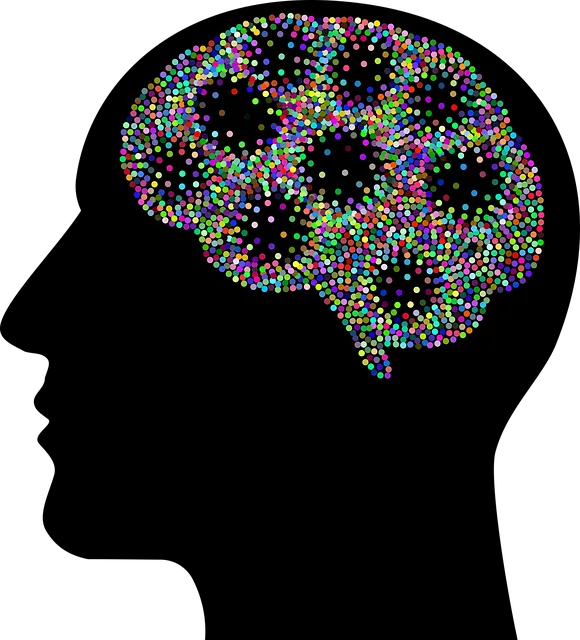Mental wellness programs offered by Kaiser Permanente in Lone Tree, as reviewed, are comprehensive tools for enhancing well-being. Through stress management workshops and evidence-based practices, these initiatives promote mental health awareness, prevent disorders, and foster healthier coping mechanisms. The impact includes increased workplace productivity, improved community relationships, and enhanced quality of life. Kaiser Permanente's behavioral health services emphasize tailored, effective practices that reduce stigma and encourage self-care, utilizing methods like Compassion Cultivation and Mindfulness Meditation. Evaluations combine qualitative and quantitative data for comprehensive insights, ensuring programs remain impactful and relevant through continuous improvement based on real-world evidence.
Mental wellness programs are gaining critical importance in modern healthcare. This article explores effective evaluation methods for these programs, highlighting key strategies through case studies and industry insights. We delve into the impact of initiatives like Kaiser Permanente’s behavioral health services and the successful evaluation approach adopted by Lone Tree. By examining metrics and best practices, we offer valuable guidance for continuous improvement, ensuring client satisfaction and optimal mental wellness outcomes.
- Understanding Mental Wellness Programs and Their Impact
- The Role of Kaiser Permanente in Behavioral Health Services
- Evaluating Behavioral Health Services: Methods and Metrics
- Case Study: Lone Tree's Approach to Program Evaluation
- Best Practices for Continuous Improvement and Client Satisfaction
Understanding Mental Wellness Programs and Their Impact

Understanding Mental Wellness Programs and Their Impact
Mental wellness programs play a pivotal role in promoting overall well-being within communities, organizations, and individual lives. These initiatives, such as those offered by Kaiser Permanente behavioral health services reviews Lone Tree, are designed to enhance mental health awareness, provide effective stress management workshops, and foster healthier coping mechanisms. By integrating evidence-based practices, these programs aim to prevent mental health issues, support those in need, and create supportive environments.
The impact of well-structured mental wellness programs is profound. They contribute to increased productivity in the workplace, improved relationships within communities, and enhanced quality of life for participants. Mental Health Education Programs Design that focus on proactive measures, such as educating individuals about recognizing and managing stress, can significantly reduce the burden of mental health disorders. This, in turn, leads to a more engaged, resilient, and satisfied population—a benefit not only to individuals but also to organizations and society at large.
The Role of Kaiser Permanente in Behavioral Health Services

Kaiser Permanente, a well-known healthcare provider, has established itself as a significant player in behavioral health services, offering comprehensive programs designed to improve mental wellness. Their approach is centered around evidence-based practices tailored to meet diverse individual needs. With a focus on Lone Tree and other communities, Kaiser Permanente provides various services aimed at promoting mental health and reducing the stigma associated with mental illness.
The organization’s commitment extends to initiatives like burnout prevention, recognizing its impact on overall well-being. By integrating innovative strategies, they foster an environment that encourages self-care and resilience. These efforts contribute to creating a supportive ecosystem where individuals can access necessary resources for managing and improving their mental health.
Evaluating Behavioral Health Services: Methods and Metrics

Evaluating the impact and effectiveness of behavioral health services is essential for organizations like Kaiser Permanente to ensure they are delivering quality care. When it comes to assessing programs in Lone Tree, a variety of methods and metrics can be employed to gain valuable insights. One effective approach involves gathering feedback from both clients and healthcare professionals through surveys and interviews. These qualitative and quantitative data sources provide a comprehensive view of the program’s strengths and areas for improvement, especially when focusing on aspects like access, convenience, and client satisfaction.
Additionally, measuring specific outcomes related to mental wellness can offer a deeper understanding. This includes tracking improvements in symptoms of anxiety and depression, as well as assessing changes in overall emotional resilience and coping mechanisms. Incorporating practices such as Compassion Cultivation and Mindfulness Meditation into the evaluation process can shed light on their effectiveness in fostering emotional healing processes. By combining these methods, Kaiser Permanente behavioral health services reviews can be comprehensive, allowing for data-driven decisions to enhance the program’s offerings in Lone Tree.
Case Study: Lone Tree's Approach to Program Evaluation

Lone Tree, a renowned mental wellness center affiliated with Kaiser Permanente behavioral health services reviews, has pioneered an innovative approach to program evaluation that goes beyond traditional metrics. Their method involves a multi-faceted strategy, incorporating both qualitative and quantitative data collection techniques. Through in-depth case studies and client surveys, Lone Tree gains valuable insights into the effectiveness of their Mental Wellness programs.
This unique evaluation process pays special attention to Empathy Building Strategies, integral to fostering strong therapeutic relationships. They also emphasize Risk Management Planning for Mental Health Professionals, ensuring a safe and supportive environment for both practitioners and clients. By seamlessly integrating these approaches, Lone Tree’s evaluation system not only measures program success but also contributes to the ongoing development of their mental health services, setting a benchmark for industry best practices.
Best Practices for Continuous Improvement and Client Satisfaction

Mental wellness programs must adopt best practices for continuous improvement to stay effective and relevant. At Kaiser Permanente behavioral health services reviews Lone Tree, we emphasize ongoing evaluation through diverse methods such as client feedback surveys, focus groups, and performance metrics tracking. This holistic approach ensures that our programs align with current needs, fostering a culture of mental health awareness and emotional healing processes.
Client satisfaction is a key indicator of program success. By gathering regular input from participants, we can identify areas for enhancement and tailor services to better support their coping skills development. These efforts are supported by our commitment to transparency, where Kaiser Permanente behavioral health services reviews Lone Tree publicly share findings, highlighting continuous improvement as a core value in promoting mental wellness within the community.
Mental wellness program evaluation is a multifaceted process, as demonstrated by the diverse approaches discussed. Organizations like Kaiser Permanente play a pivotal role in providing comprehensive behavioral health services and fostering client satisfaction. The case study of Lone Tree’s evaluation method highlights innovative strategies for continuous improvement. By employing robust metrics and integrating client feedback, mental wellness programs can effectively measure their impact and adapt to meet evolving needs. This ensures that resources are allocated efficiently, enhancing overall well-being within communities, as evidenced by the success stories shared in this article.






